Dog Stomach Gurgling: Causes and Solutions Explained
Dogs often surprise their owners with all sorts of sounds, including the noises coming from their stomachs. These noises can be growls, rumbles, or gurgles. They are usually harmless and can mean different things depending on the situation.

Sometimes, a dog’s stomach might make sounds because it’s empty. Other times, it’s busy digesting a large meal. Occasionally, the noise might point to an upset stomach. Understanding the reasons behind these sounds can help decide if a trip to the vet is needed.
Reasons Behind Your Dog’s Stomach Noises
Digestive Process

The sounds that come from a dog’s stomach are often just a part of the normal digestive process. These noises, known as borborygmi, happen because of muscle contractions called peristalsis.
These contractions help move food and water through the stomach and intestines. After eating, it’s common to hear these sounds as the digestive system gets to work.
Empty Stomach Sounds
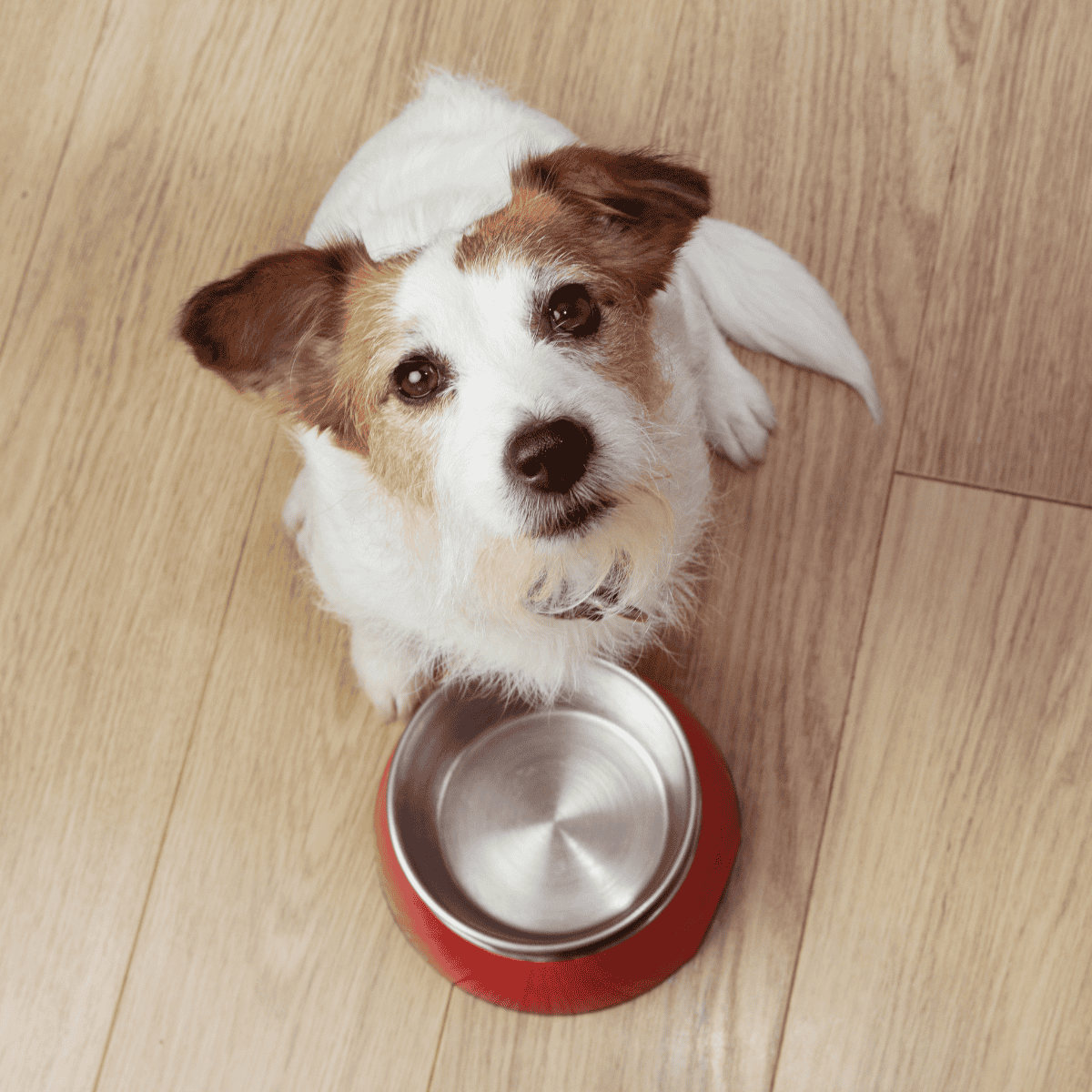
When a dog’s stomach and intestines are empty, there’s nothing to block the sounds of water and gas moving around. This often happens when they haven’t eaten for a while. It’s similar to the way water sounds when it travels through an empty pipe.
Upset Stomach and Diarrhoea

An upset stomach can cause more noticeable noises in dogs. Diarrhea speeds up the movement of food and fluids through the digestive tract, which can result in louder and more frequent sounds. Before an episode of diarrhea, dogs might have increased gurgling as their stomachs react to the disturbance.
Trying New Foods
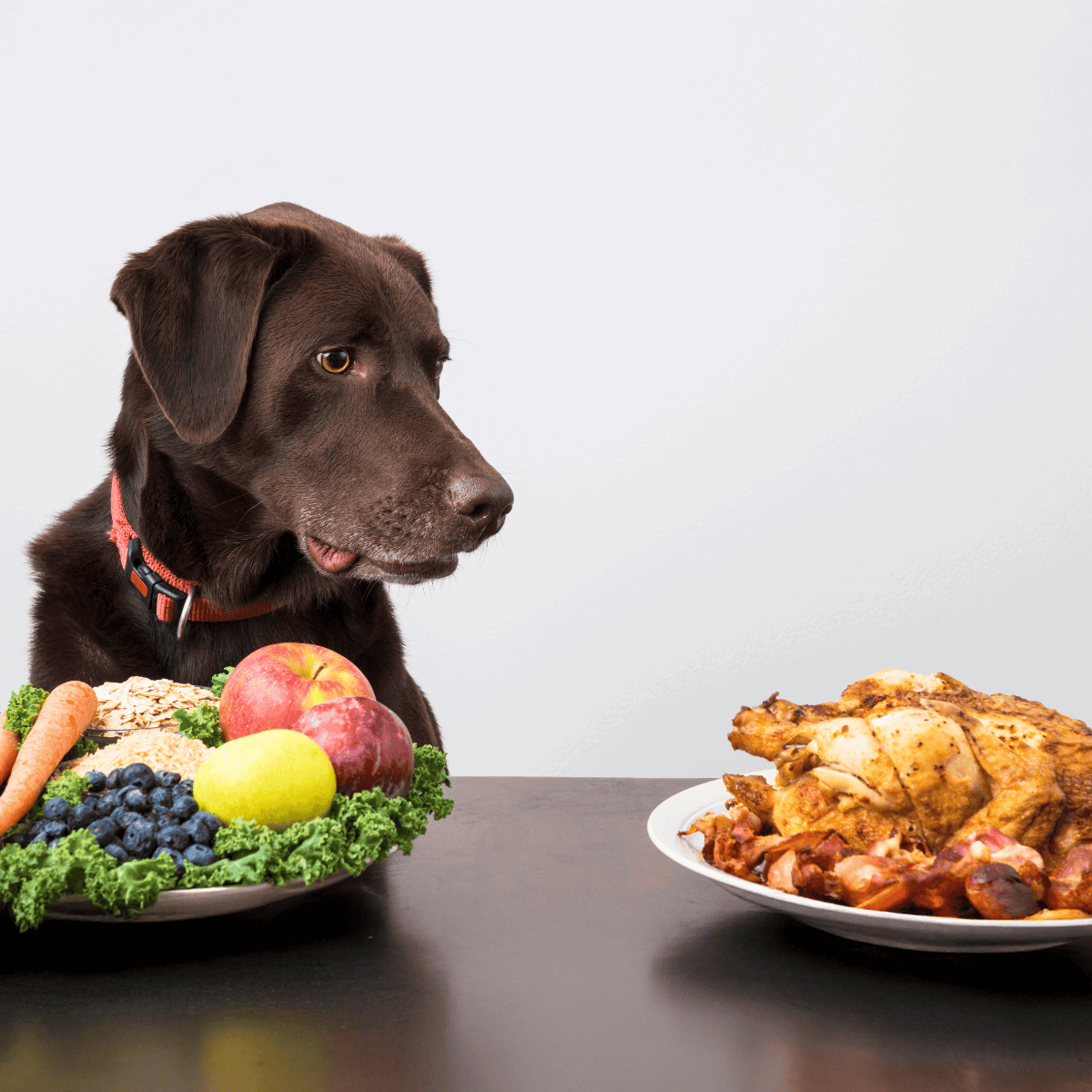
Introducing new food or treats can also lead to more stomach noises. Whether it’s a new type of dog food or leftover human food, dietary changes can irritate a dog’s digestive system. If your dog eats something that doesn’t agree with them, they might experience a temporary increase in stomach sounds as their body adjusts.
Obstructions in the Bowels

A blockage within a dog’s digestive system is a serious issue that may cause lots of stomach noise. Dogs sometimes swallow items that they shouldn’t, like socks or bones. These can get stuck, resulting in increased noise as their body tries to process the obstruction. If a dog swallows something unusual, a visit to the vet is crucial to avoid severe health risks.
Issues with the Digestive System
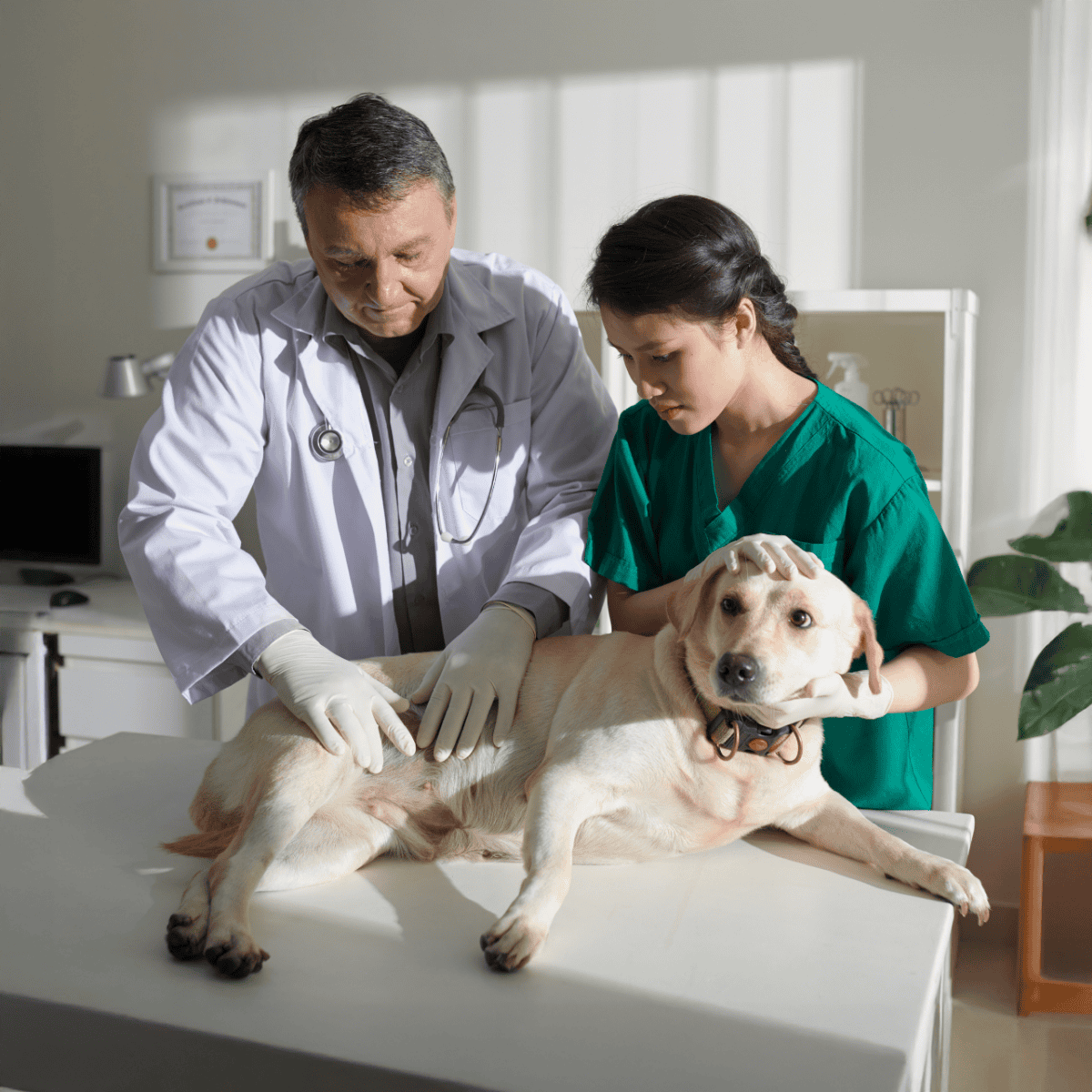
Problems with the digestive system, such as inflammatory bowel disease or pancreatic issues, can make a dog’s stomach louder. These conditions can alter how food is broken down and moved through the digestive tract, leading to increased noise.
Parasites and Bacteria Problems
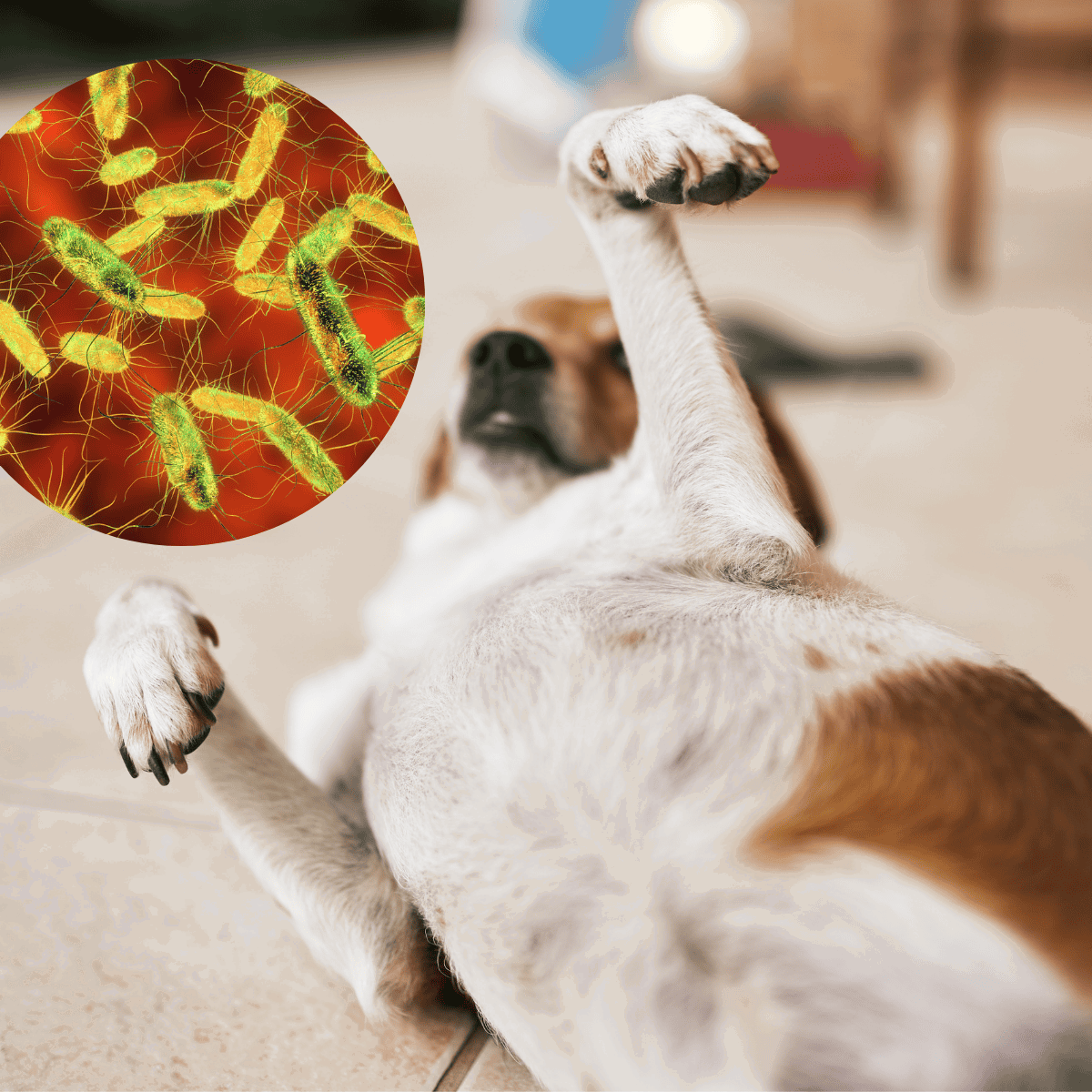
Parasites and bacteria, like salmonella or E. coli, can cause stomach sounds to be more frequent or louder. These unwanted guests can upset the balance in the intestine by reducing nutrient absorption or producing gas as they multiply.
Gas Accumulation
Excess gas is another common reason for a dog’s stomach to make noise. Gas forms when bacteria break down less digestible carbohydrates. Some dogs may be more sensitive to certain ingredients, leading to increased gas production.

Additionally, dogs that pant or gulp their food quickly can swallow extra air, resulting in more gas and noise. Feeding treats like dairy can also contribute to gas if the dog struggles to digest lactose.
Indications of Dietary Issues
When a dog’s stomach makes unusual noises, it might point to dietary issues. These can include food intolerance or feeding practices that do not meet their nutritional needs.
Food Intolerance
Dog food intolerance occurs when the digestive system reacts negatively to certain ingredients. Common culprits include dairy, wheat, and beef. Symptoms may include bloating, gas, or diarrhea.
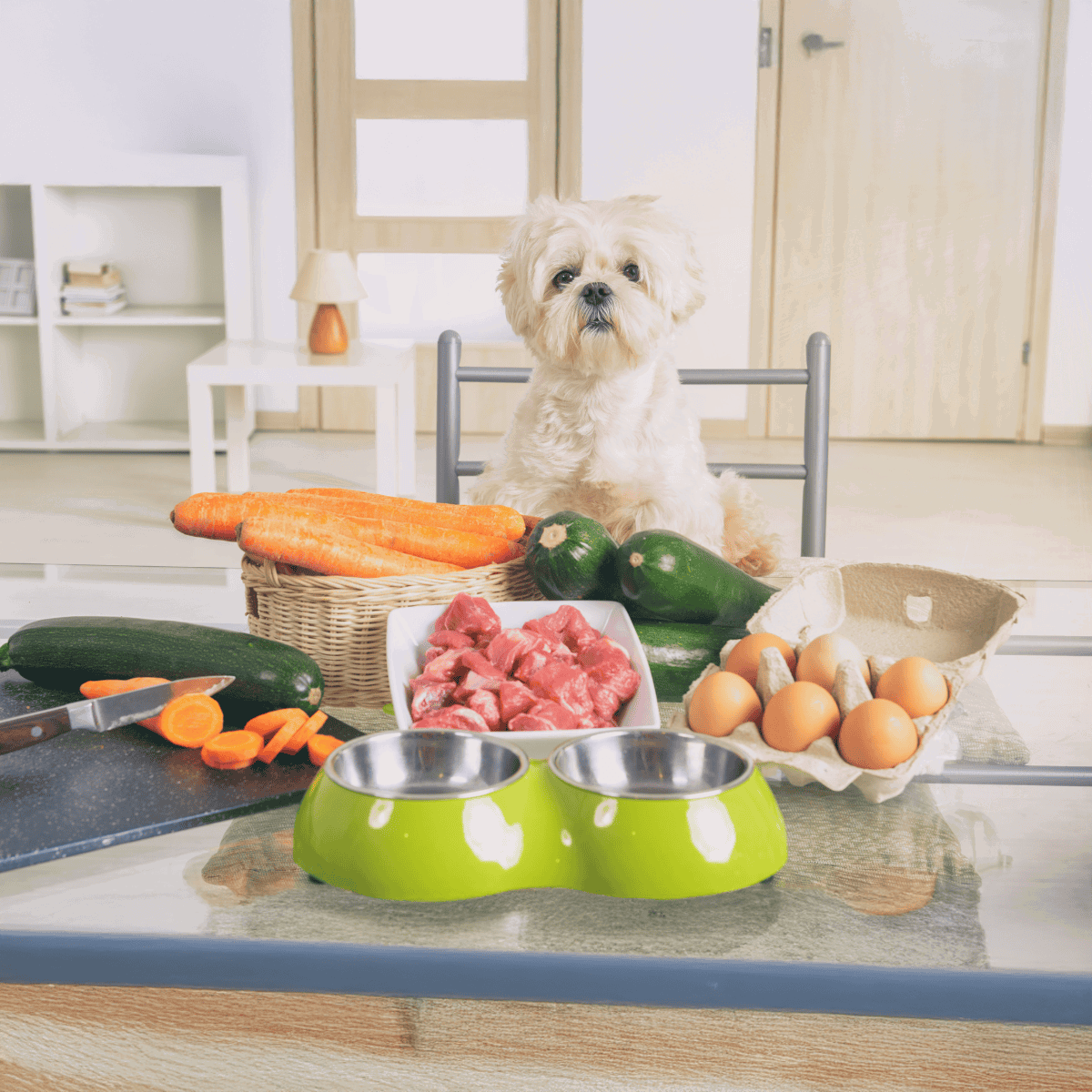
Keeping an eye on your dog’s reactions to different foods is crucial. A food diary can be helpful for tracking which foods cause issues. Elimination diets, where possible problem foods are removed and reintroduced one at a time, can pinpoint the cause. If these symptoms continue, consulting a veterinarian is recommended to rule out other health concerns.
Inappropriate Diet
An inappropriate diet means feeding a dog food that does not meet its nutritional requirements or is harmful. Dogs need a balanced diet with proteins, carbohydrates, fats, vitamins, and minerals.
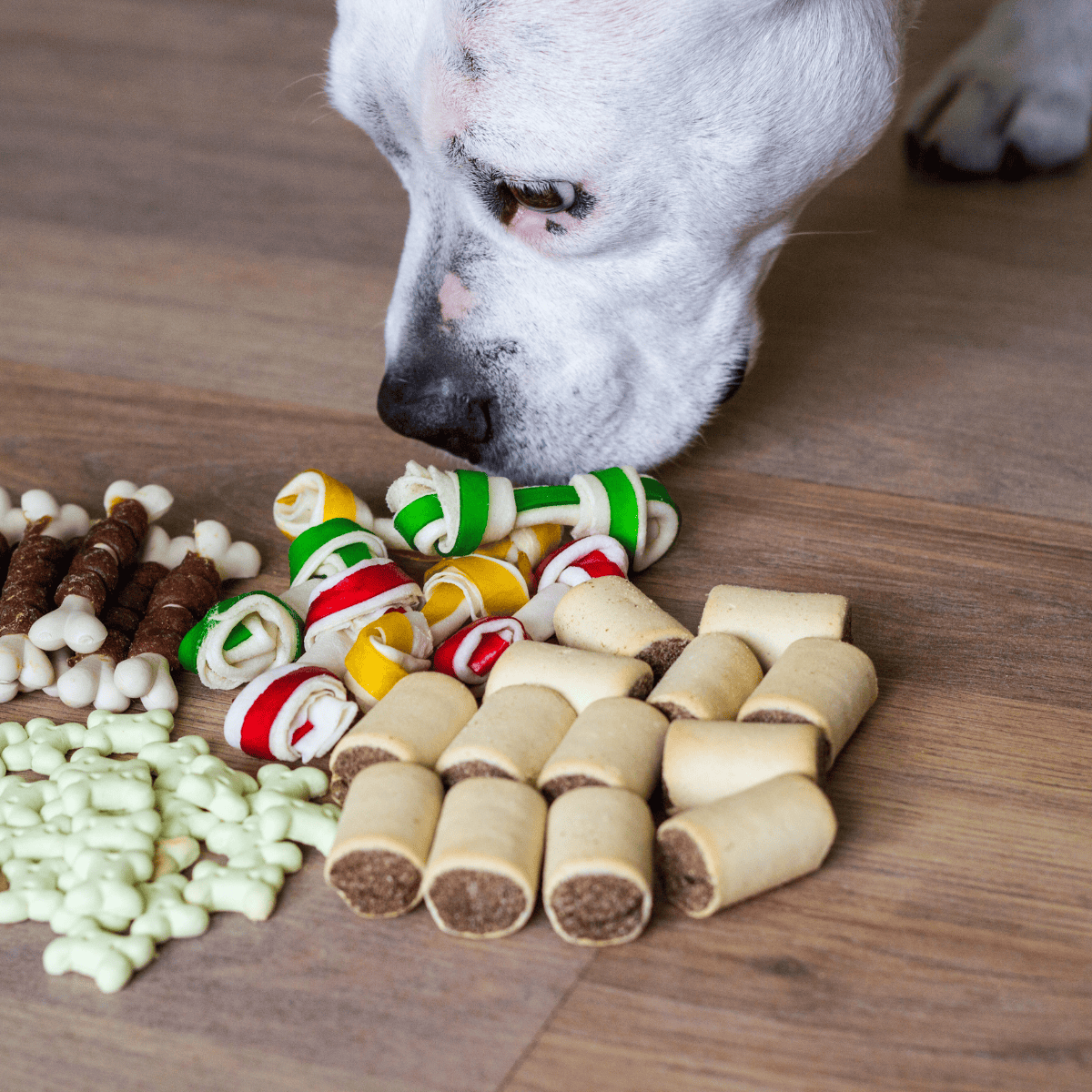
Overfeeding or underfeeding could lead to weight changes and digestive problems. Offering table scraps or human snacks can disrupt their digestive tract. It’s important to choose dog foods that specify balanced nutrition. Routine check-ups with a vet can help ensure they are getting the right nutrients for their size, age, and activity level.
Enjoying this read?
We publish this content for free to generate interest in our Premium members' area. By subscribing, you can ask the writer any questions related to pet care and this article, get access to 100+ Premium Pet Care Guides and go Ad-Free with DogFix Premium for $2.99.
When Gurgling May Signal Health Concerns
Certain sounds from a dog’s stomach might point to trouble. These noises could come from digestive issues, infections, or parasites. Each case has different signs and needs special care.
Gastrointestinal Disorders
When a dog’s stomach gurgles because of gastrointestinal disorders, it might have conditions like gastritis, pancreatitis, or inflammatory bowel disease. Dogs with these issues often show signs like vomiting, diarrhoea, loss of appetite, and weight loss.
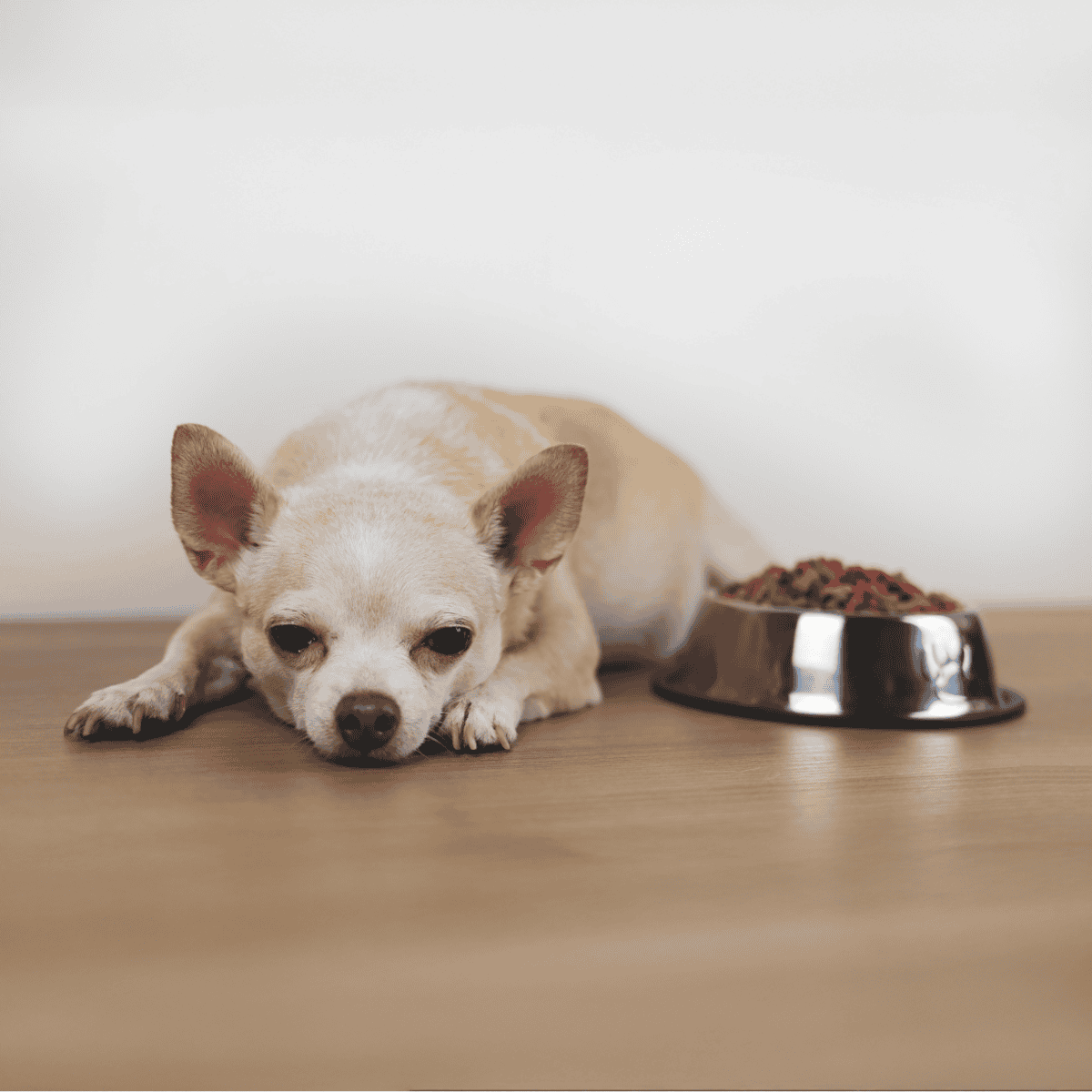
These disorders can disrupt normal digestion, causing excess gas and discomfort. If the dog seems in pain or shows other severe symptoms, it requires veterinary attention. A vet may recommend dietary changes, medication, or further testing to identify the exact issue.
Bacterial or Viral Infections
Bacterial and viral infections are common reasons for stomach gurgling. Infections caused by bacteria like Salmonella or viruses such as Parvovirus attack a dog’s digestive system.

Symptoms can include fever, lethargy, lack of appetite, vomiting, or diarrhea, sometimes with blood. Treatment usually involves hydration, antibiotics for bacterial infections, and supportive care. Vaccination and good hygiene can help prevent many of these diseases.
Parasitic Infestations
Parasites can live in a dog’s intestines, causing noise and discomfort. Common parasites include roundworms, hookworms, and tapeworms. Dogs with these infestations might have a swollen belly, diarrhea, and noticeable weight loss.
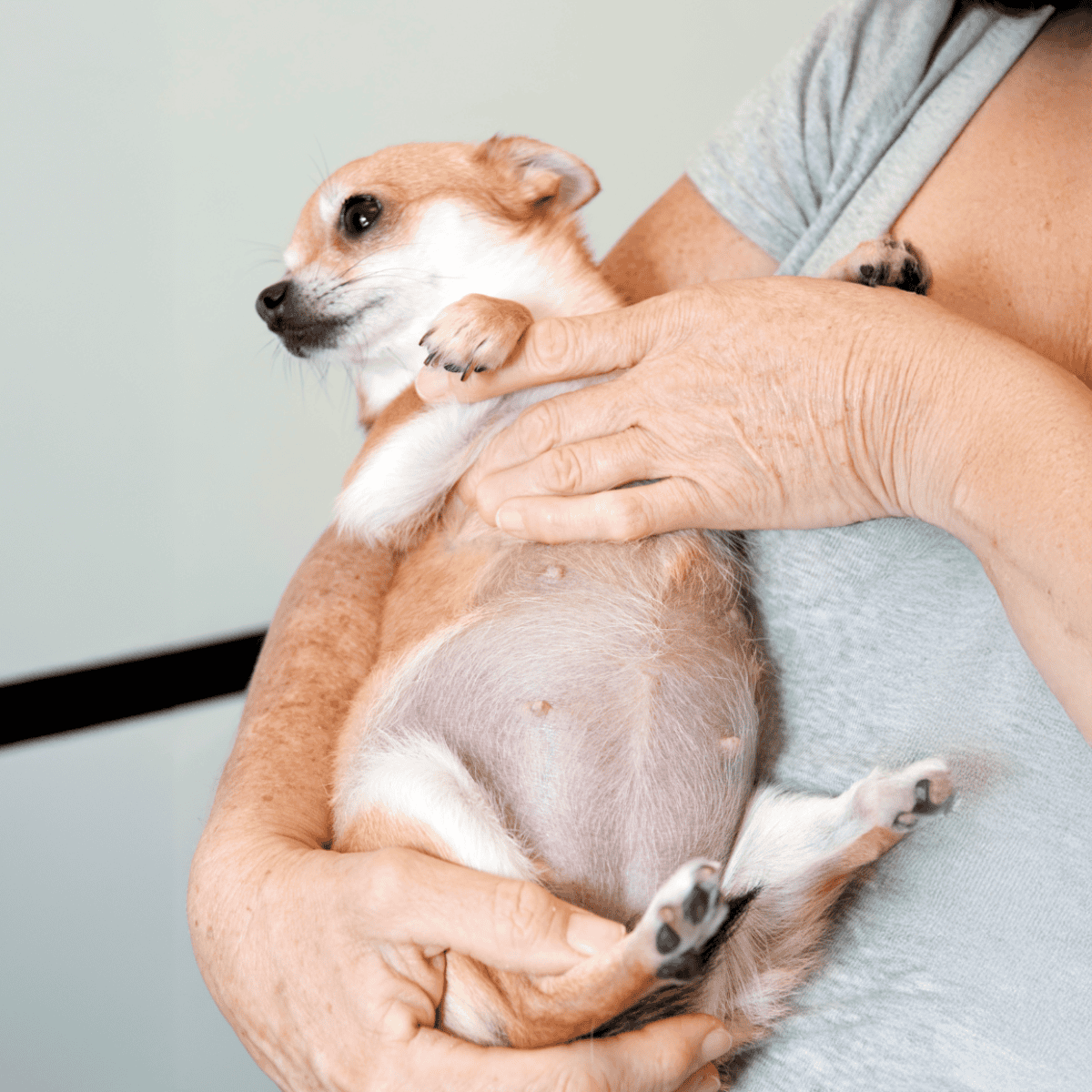
Regular deworming and preventative measures are crucial. A veterinarian can confirm a parasitic infection through stool tests and prescribe the appropriate deworming medication. Left untreated, these parasites can lead to serious health problems.
Response to Dietary Changes
Changes in a dog’s diet can lead to stomach gurgling as their digestive system adjusts. Two common causes are switching food brands and introducing new treats or human food. Knowing how your dog’s stomach responds can help address these changes effectively.
Switching Food Brands
When a dog switches food brands, their stomach may take time to get used to the new ingredients. Transitioning too quickly can result in gurgling noises and possibly upset stomachs. It’s recommended to gradually mix the new food with the old over a period of 7-10 days. This slow change allows the digestive system to adapt.
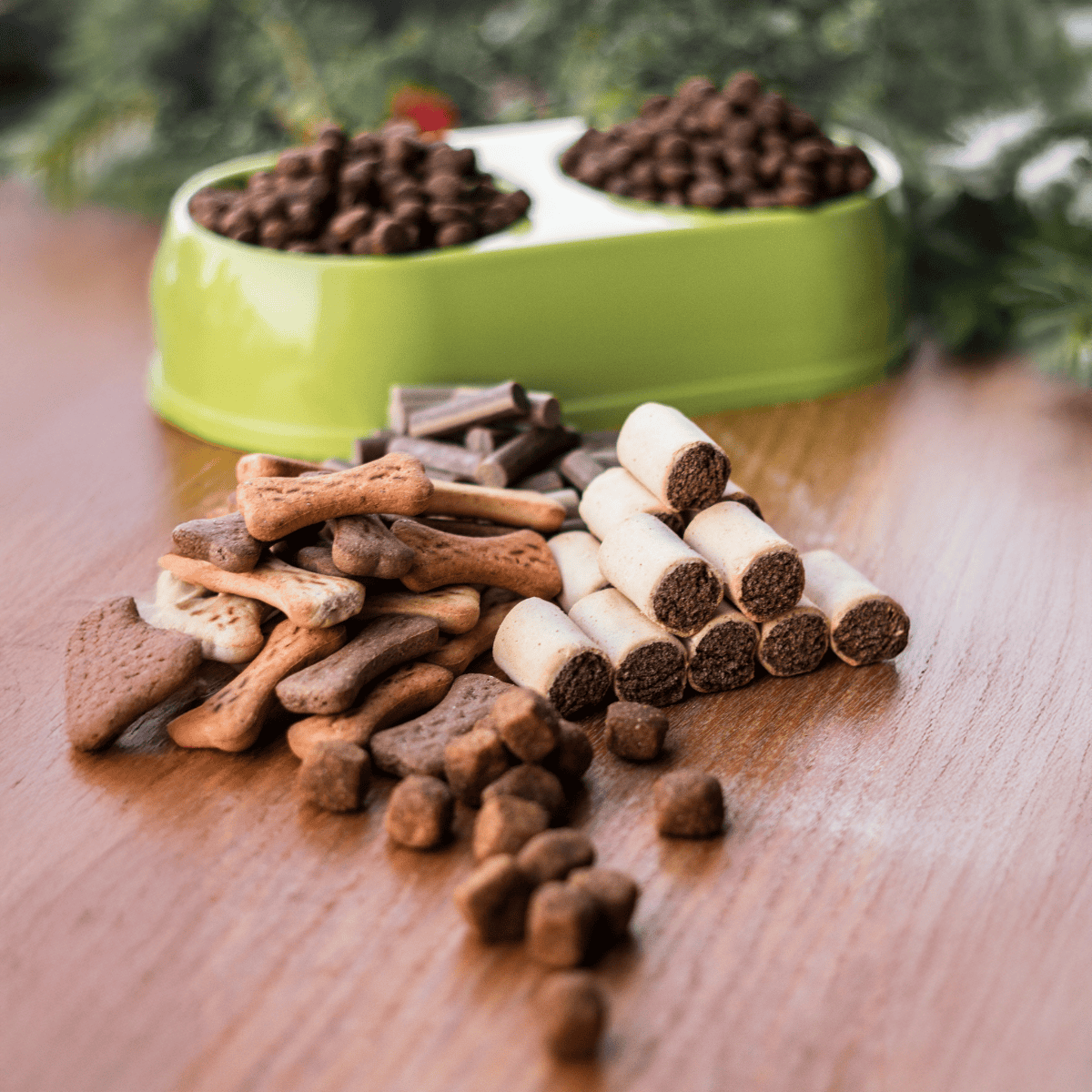
If the gurgling persists beyond a week, check the new food’s ingredient list. Some dogs are sensitive to certain ingredients that might be present in the new brand. Proteins, grains, or additives could be potential triggers for digestive discomfort. Monitoring any additional symptoms like diarrhea or vomiting is important, as persistent issues might require a vet visit.
New Treats or Human Food
Introducing new treats or letting dogs eat human foods can cause stomach noises if their system doesn’t agree with these changes. Dogs might love the taste, but some ingredients may be hard to digest. Rich or fatty foods are common culprits that can lead to gurgling.
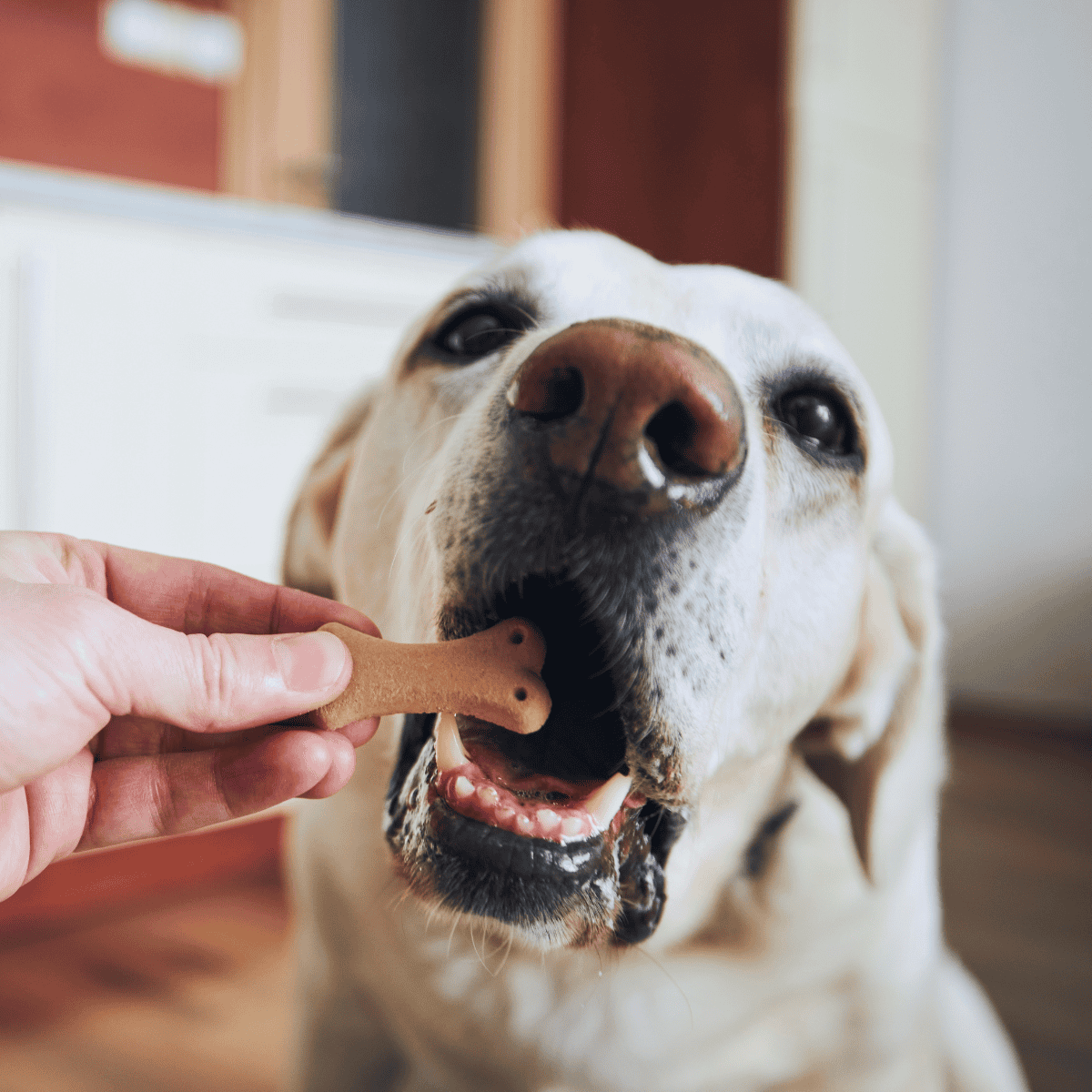
To prevent this, introduce new treats gradually and pay attention to how their stomach reacts. Common problematic ingredients include dairy, fatty meats, and spicy foods.
Overfeeding treats or regularly giving table scraps can also contribute to digestive issues. Keeping a list of what the dog eats can be useful for tracking any problem foods. This practice helps identify and eliminate the foods causing discomfort.
Assessing Hydration and Dehydration
Dogs need to stay hydrated to be healthy. A dog’s water intake can affect stomach gurgling. Not drinking enough water can lead to dehydration. Signs that your dog is dehydrated includes dry or pale gums, loss of skin elasticity, and sunken eyes.
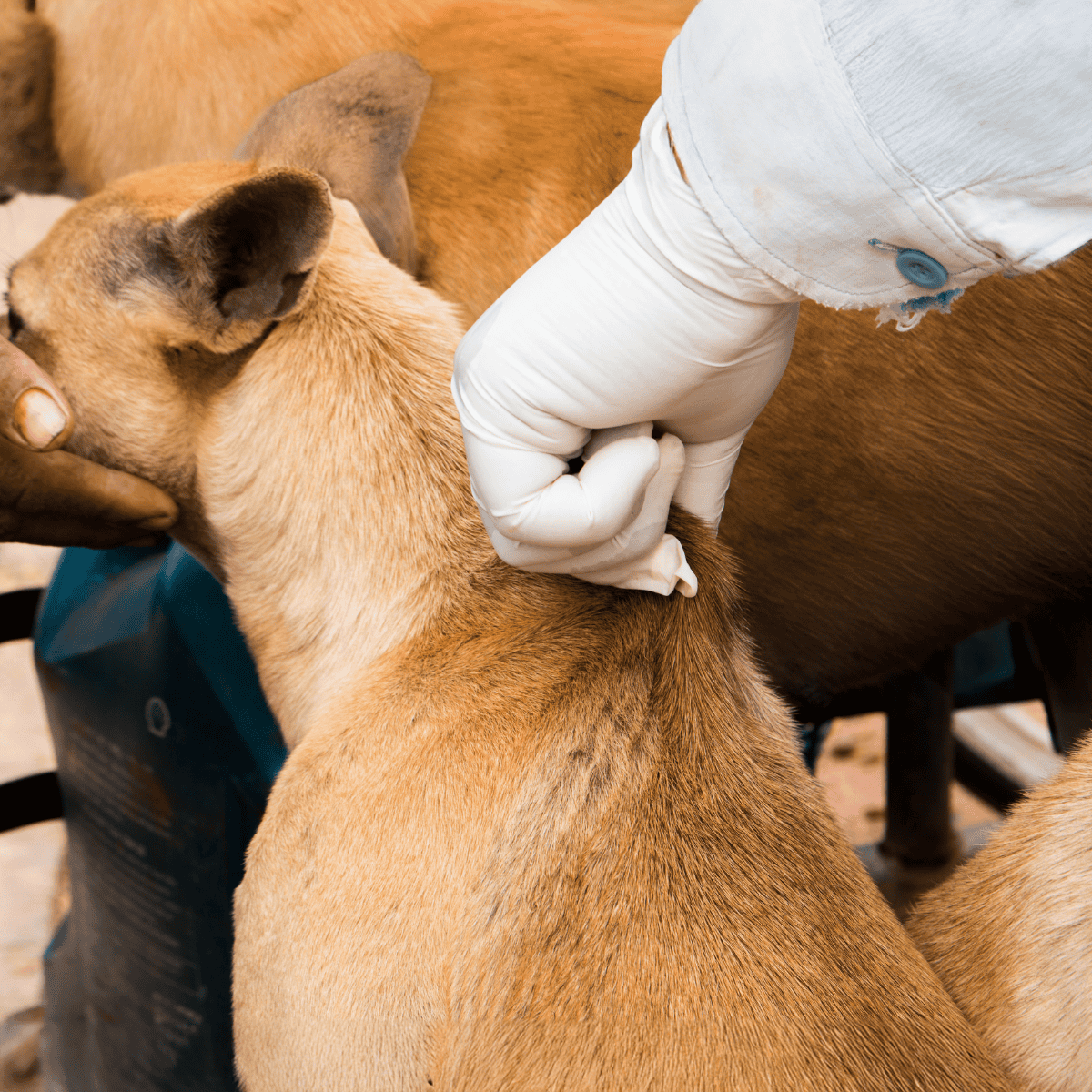
Use the skin tent test to check for dehydration. Gently pinch the skin at the back of the dog’s neck. If the skin takes time to fall back in place, this may indicate dehydration.
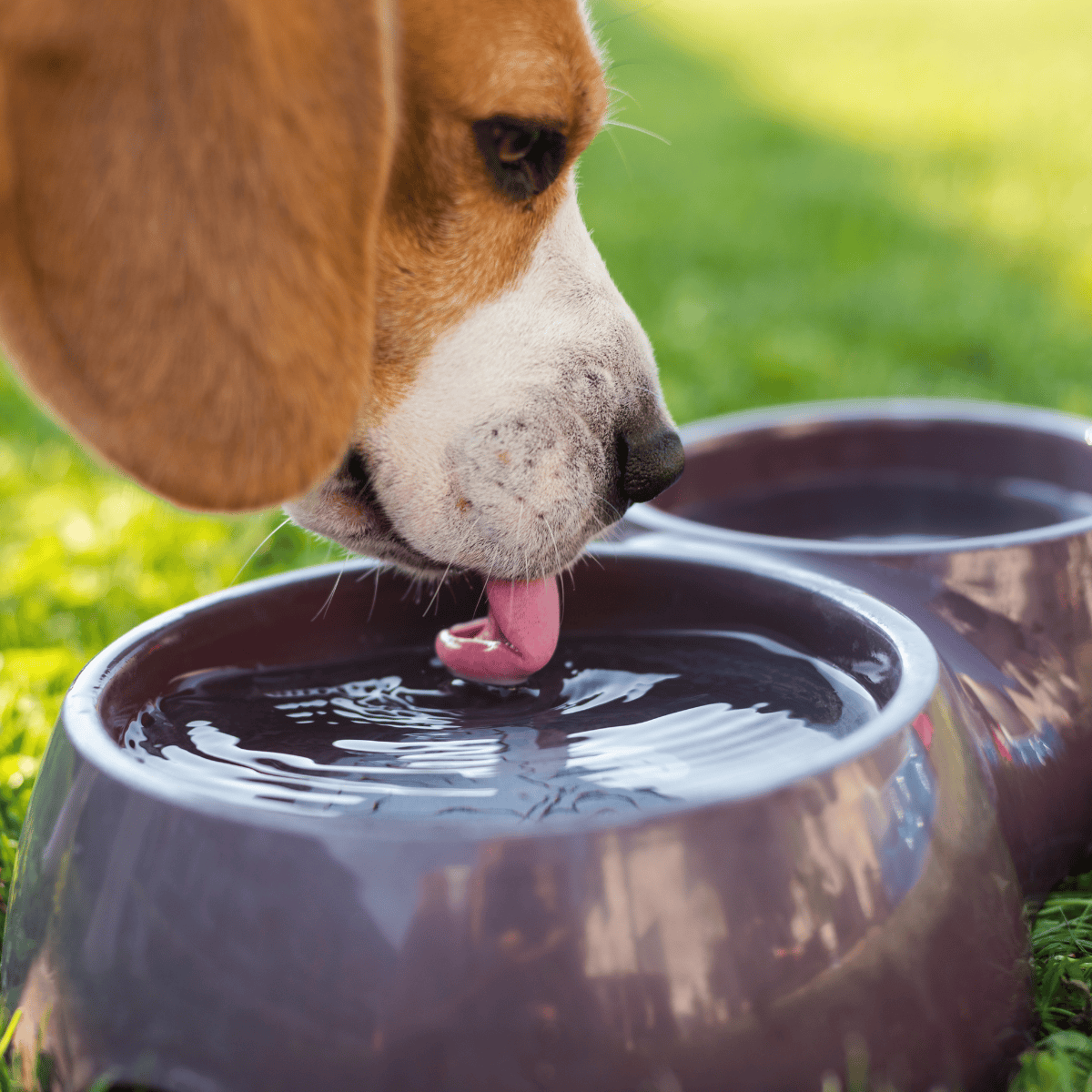
A dog usually requires about an ounce of water per pound of body weight each day. Adjust based on activity level, weather, and diet. Fresh, clean water should always be available. Check that your dog drinks after exercise or on hot days. This helps reduce the risk of dehydration.
If unsure about hydration levels, consult a vet. They can check for specific conditions and give advice on water intake.
Behavioural Responses to Stomach Discomfort
Dogs often show different behaviours when they feel tummy discomfort. They might be less active, more fidgety, or vocalise. Each of these reactions can help an owner understand what their pet is experiencing.
Lethargy
When a dog’s stomach hurts, it might seem more tired or less willing to move around. This lack of energy can be due to the discomfort. Activities that typically excite the dog, like walks or playing, may not interest them anymore.
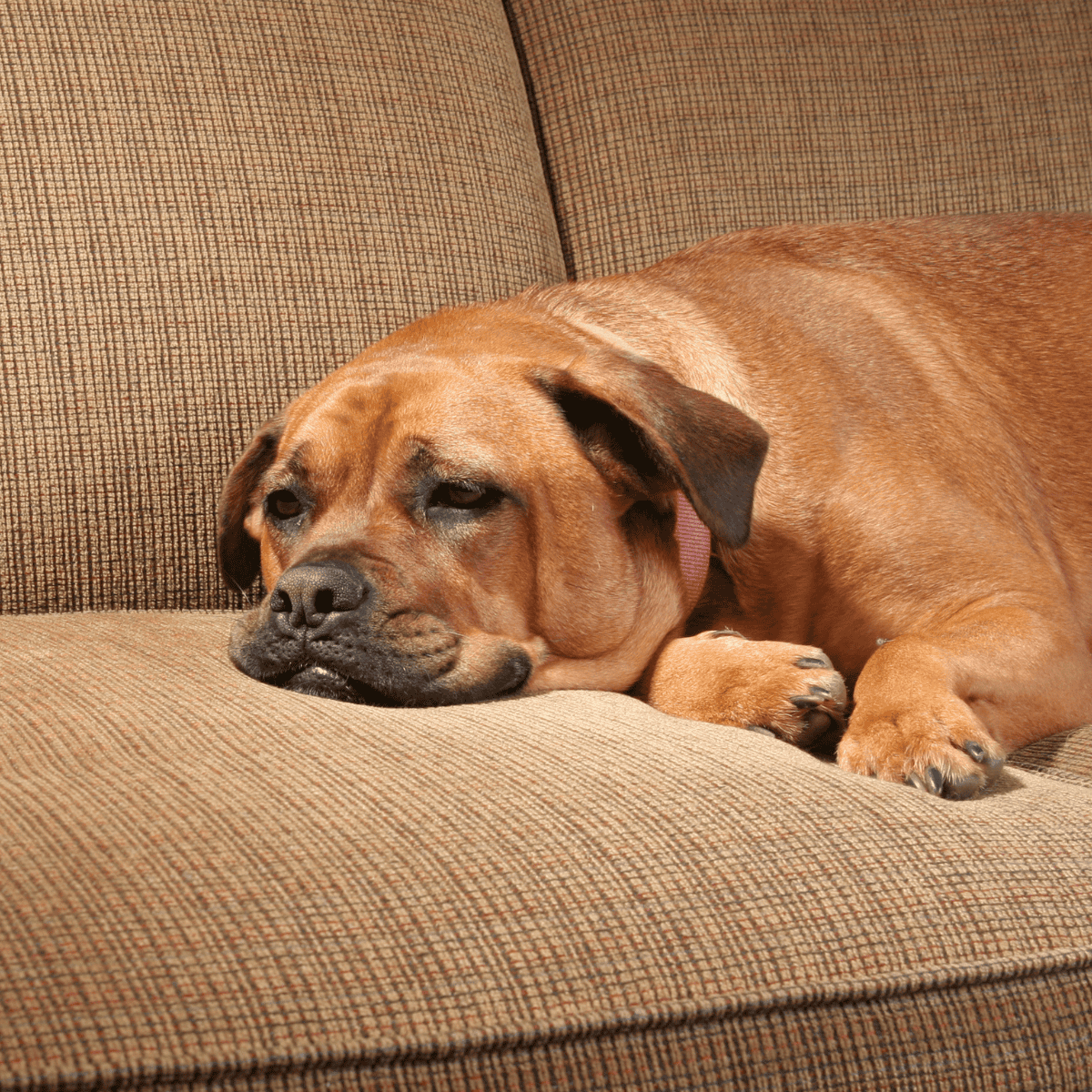
They might choose to lie down more often or sleep longer than usual. It’s important to watch for such changes, as consistent tiredness can be a sign that something isn’t right. Lethargy can also indicate that the dog is trying to conserve energy to deal with the discomfort.
Restlessness
Unlike lethargy, some dogs react to stomach pain by becoming restless. They may have trouble settling in one spot. Instead, they might pace around or change position frequently.
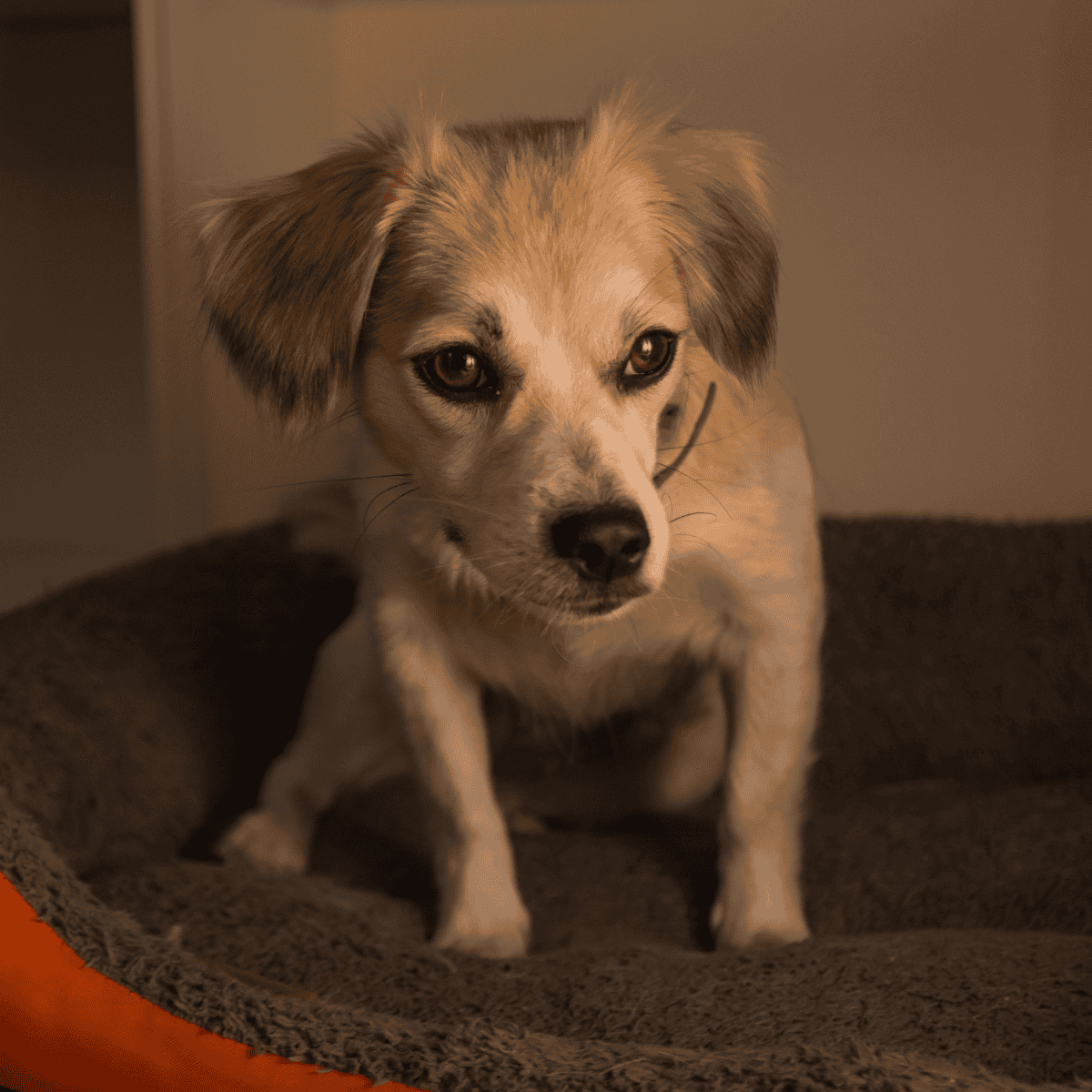
This restlessness comes from difficulty finding a comfortable position. The dog might circle before lying down or get up repeatedly. If restlessness persists, it’s essential to monitor it closely. Being unable to relax can be exhausting for the dog and might worsen their discomfort.
Whining or Barking
Vocalizing is another common response to stomach issues. Dogs might whine or bark to express that they are in distress or feel uncomfortable. Each dog’s vocalisation will vary, but it often reflects their level of pain or discomfort.
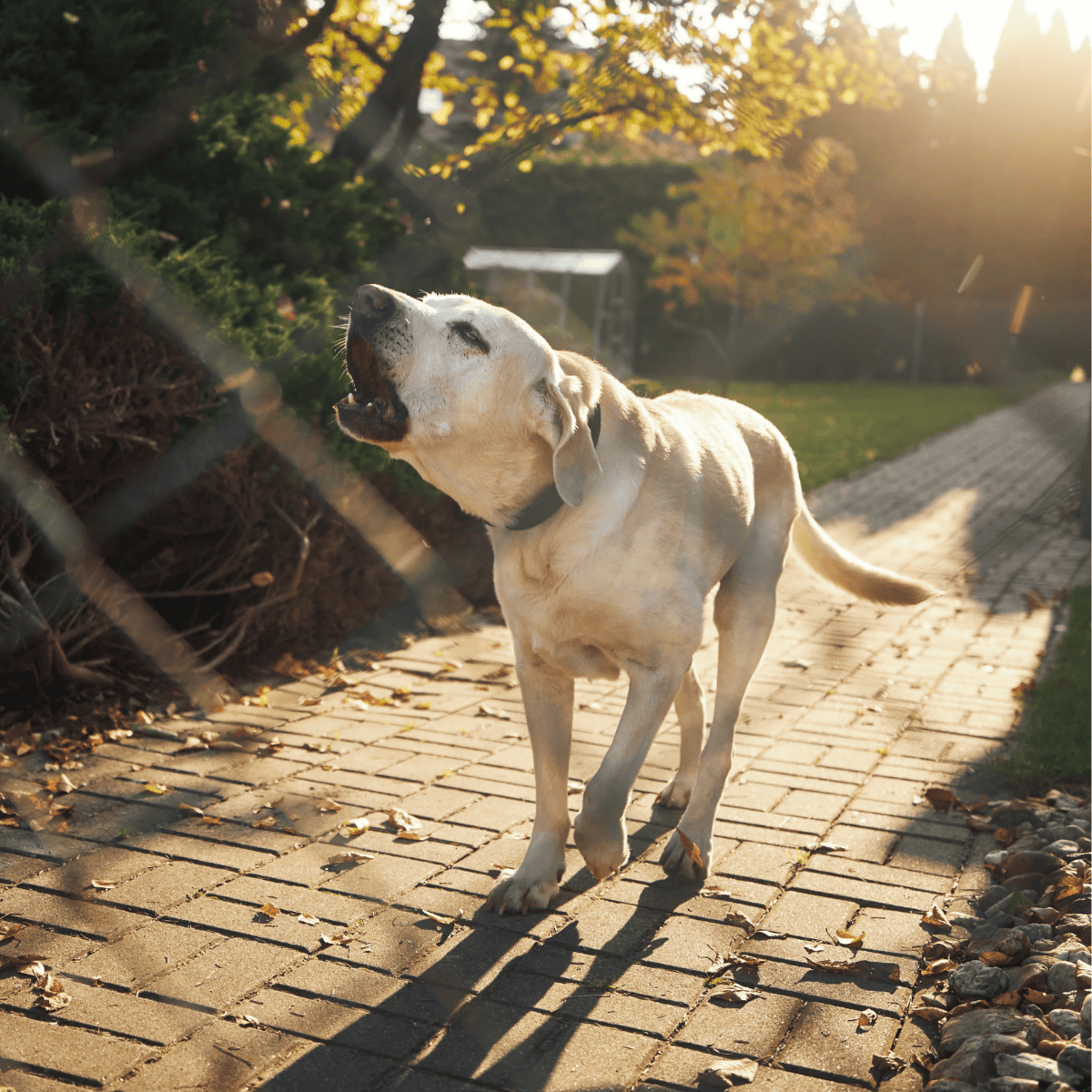
Whining is typically more common because it’s a softer way for dogs to communicate that something is wrong. If a dog is barking more than usual, especially if it’s directed at their owner, it might be their way of seeking help or attention. This increase in noise is a clear indicator of discomfort and should be addressed promptly.
When to Contact the Vet for Dog Stomach Sounds
Sometimes, stomach sounds in dogs are typical, but certain noises could signal issues. If symptoms appear along with stomach gurgling, consider contacting a vet. These symptoms are vomiting or attempting to vomit, severe diarrhea or any ongoing diarrhea for more than a day or two, lethargy, loss of appetite, or refusal to eat.
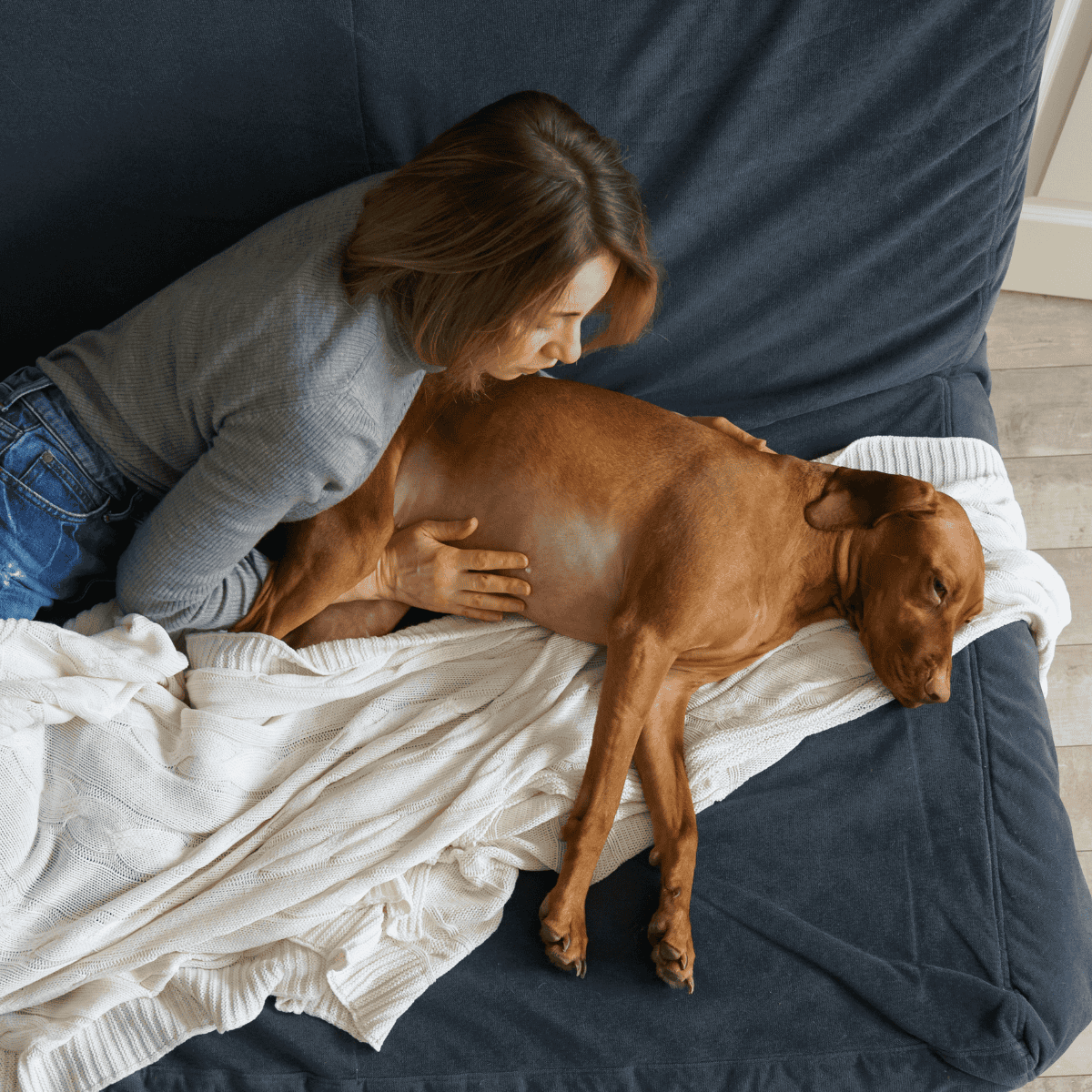
If you hear many gurgling sounds, pay attention to any signs of belly pain or abnormal posture. If these noises are paired with other concerning signs, contact a veterinarian immediately.
Ways to Soothe Your Dog’s Rumbly Tummy
Ensure Constant Access to Clean Water
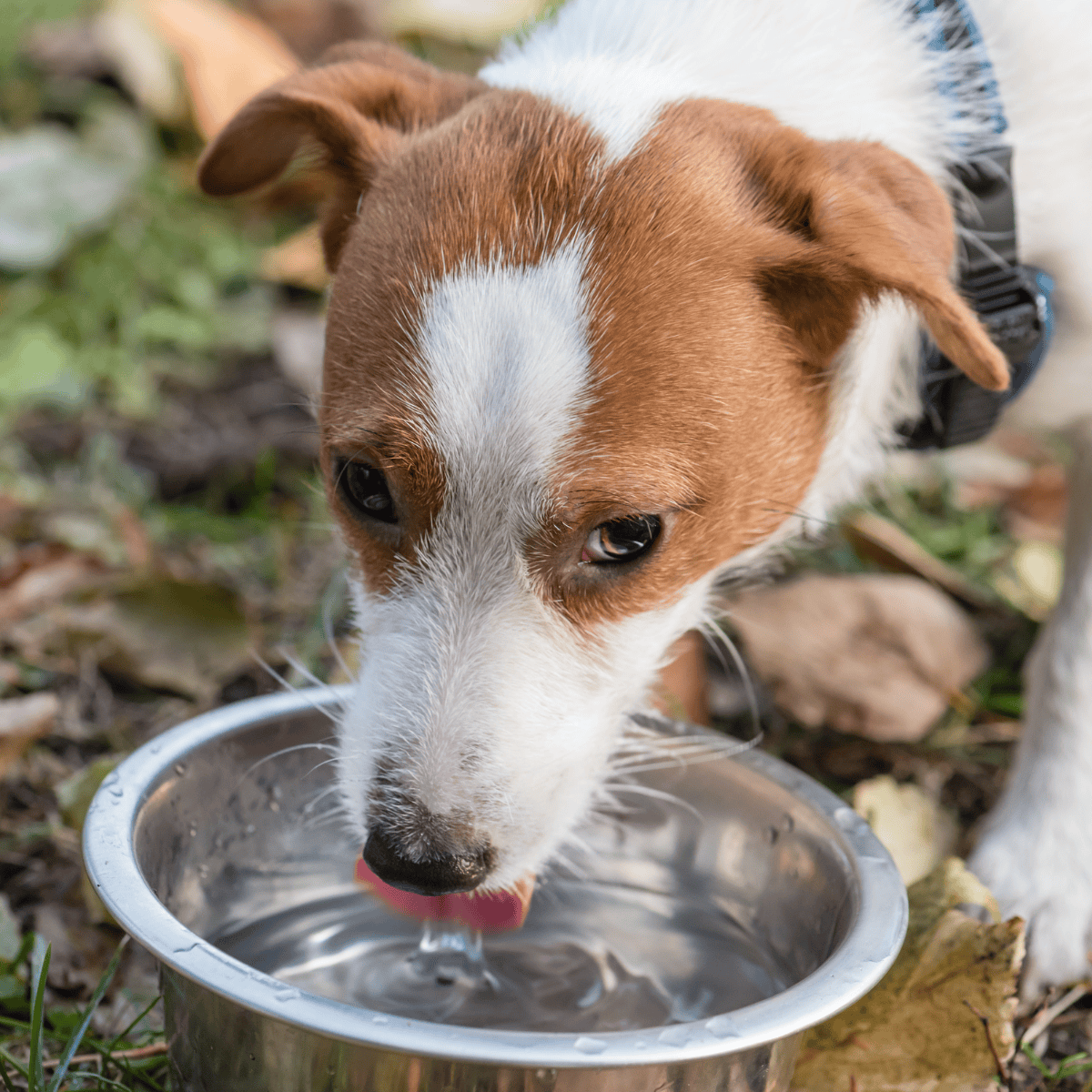
Having plenty of clean water available is important for your dog. Water helps move food through their digestive system and keeps bowel movements normal. Investing in a special water fountain designed for dogs can encourage them to stay hydrated.
Slow Down Mealtime With Special Bowls
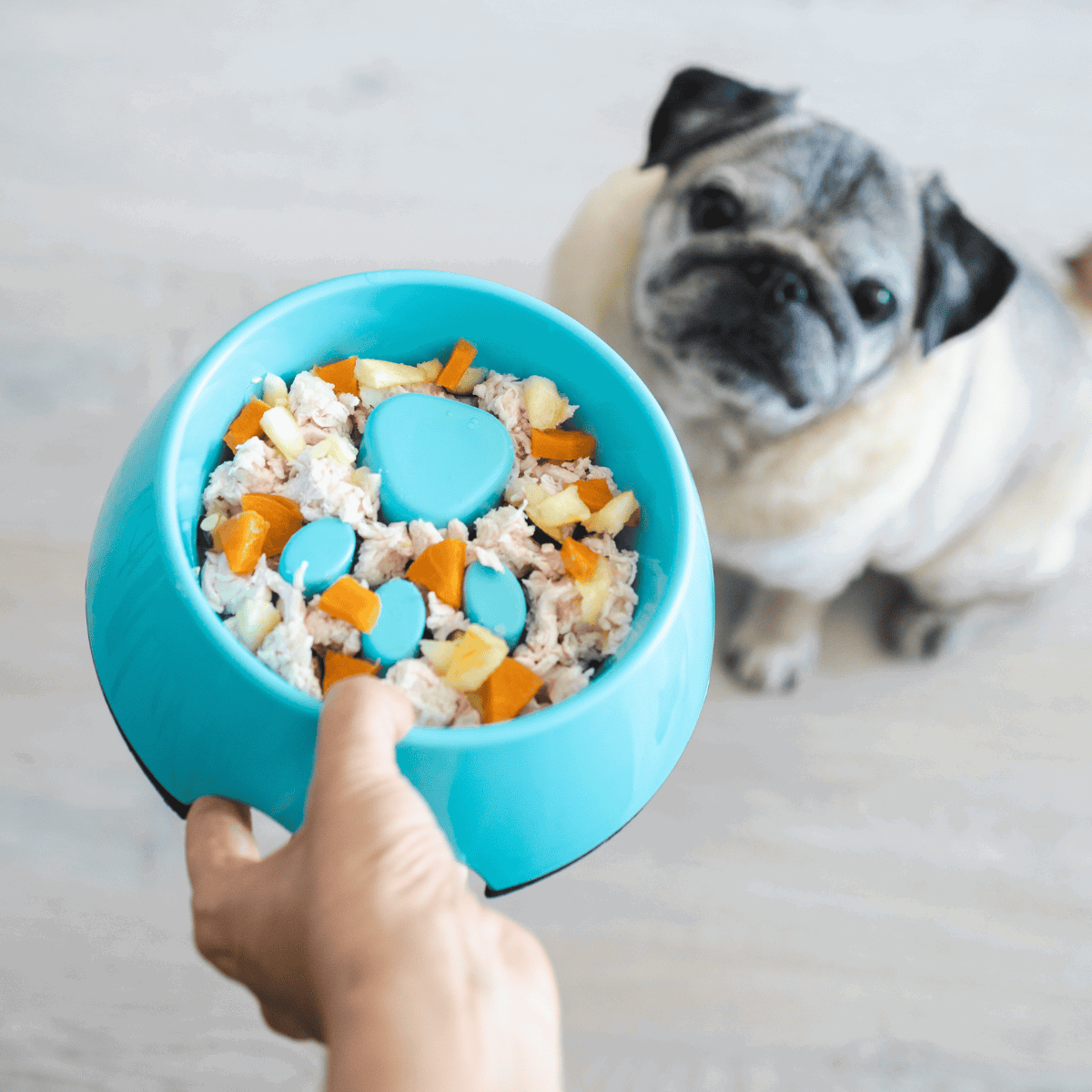
Dogs that eat too fast often swallow extra air, resulting in more gas and stomach noises. Special feeding bowls with obstacles can slow your dog down. These bowls include features like knobs or grooves that make them work a little harder to get their food.
Opt for More Frequent, Smaller Portions
Splitting your dog’s meals into smaller servings throughout the day can help. Rather than adding extra snack times, which can cause weight gain, simply divide their usual food into smaller portions.
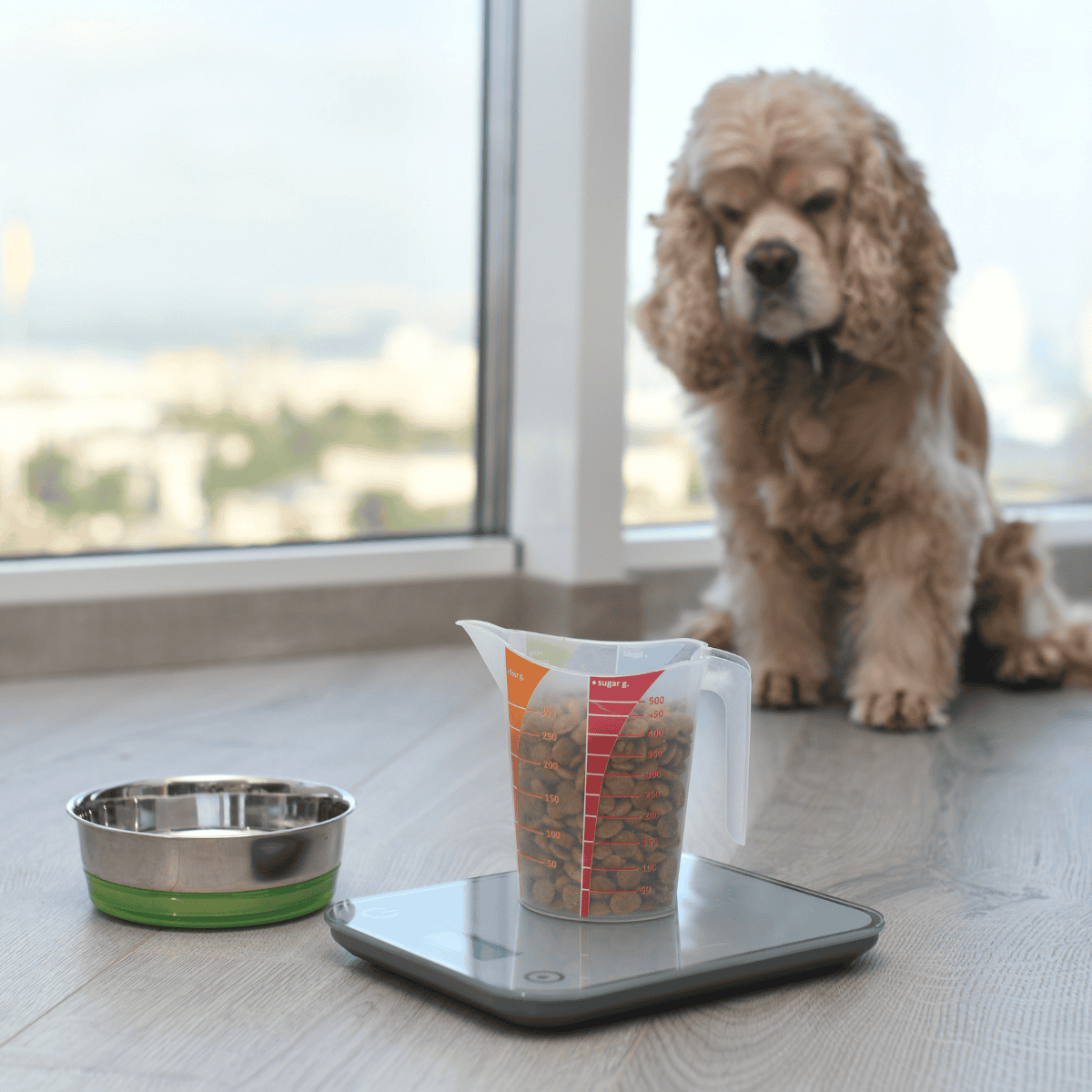
For instance, if you normally give 2 cups of food twice a day, try giving 1⅓ cups three times a day. This tactic can help keep your dog’s stomach from being empty too long, reducing noises.
Prevent Overeating
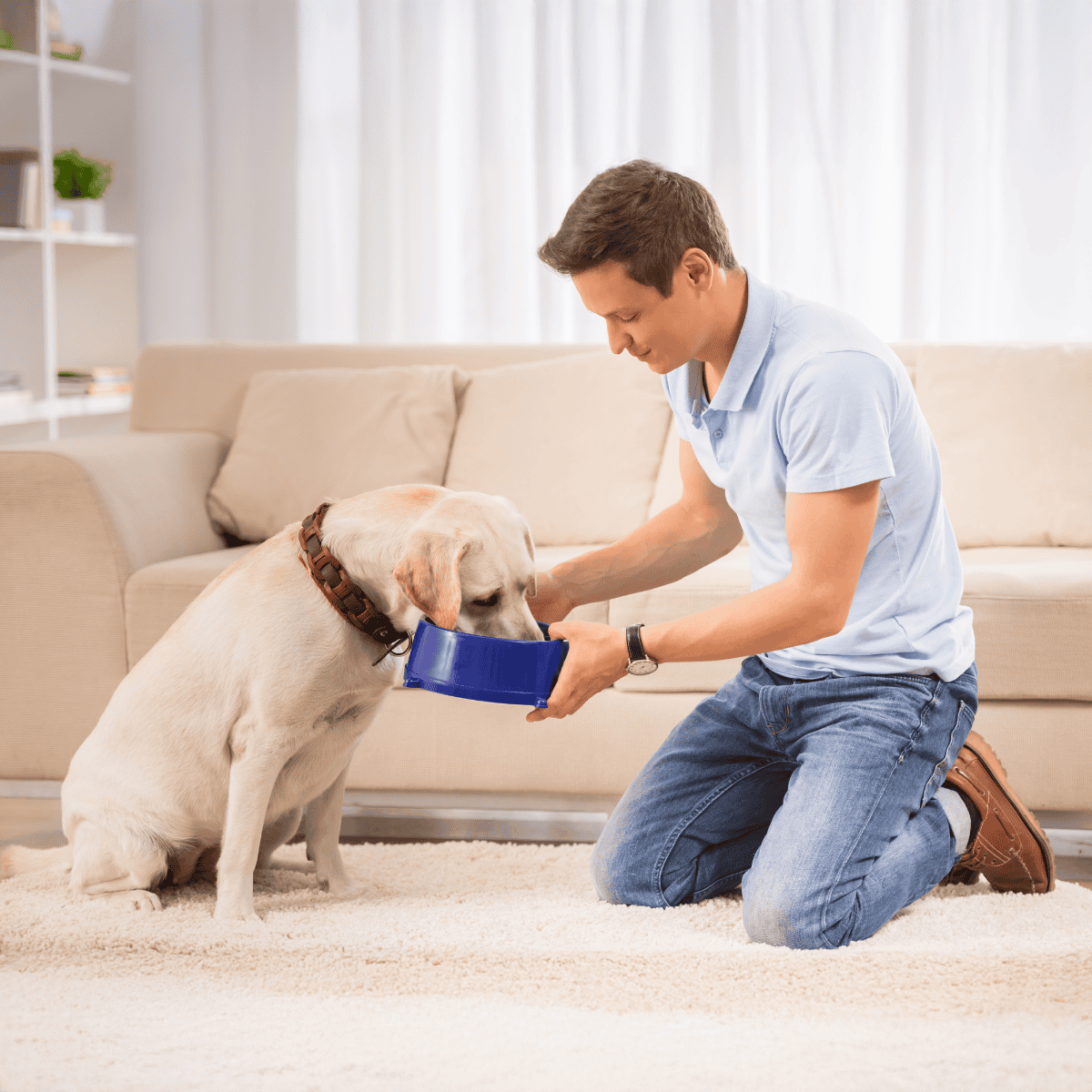
Allowing free feed can lead to overeating. Even if you provide smaller meals more often, make sure they’re not overeating. Too much food can cause additional stomach noise and make digestion more challenging for your dog.
Introduce Relaxation Aids and Supplements
Some dogs may gurgle more if they’re feeling anxious, due to increased panting and swallowing of air. Stress can also slow down how quickly their stomach empties, which amplifies digestive noises. To help lower stress, consider giving your dog calming supplements.
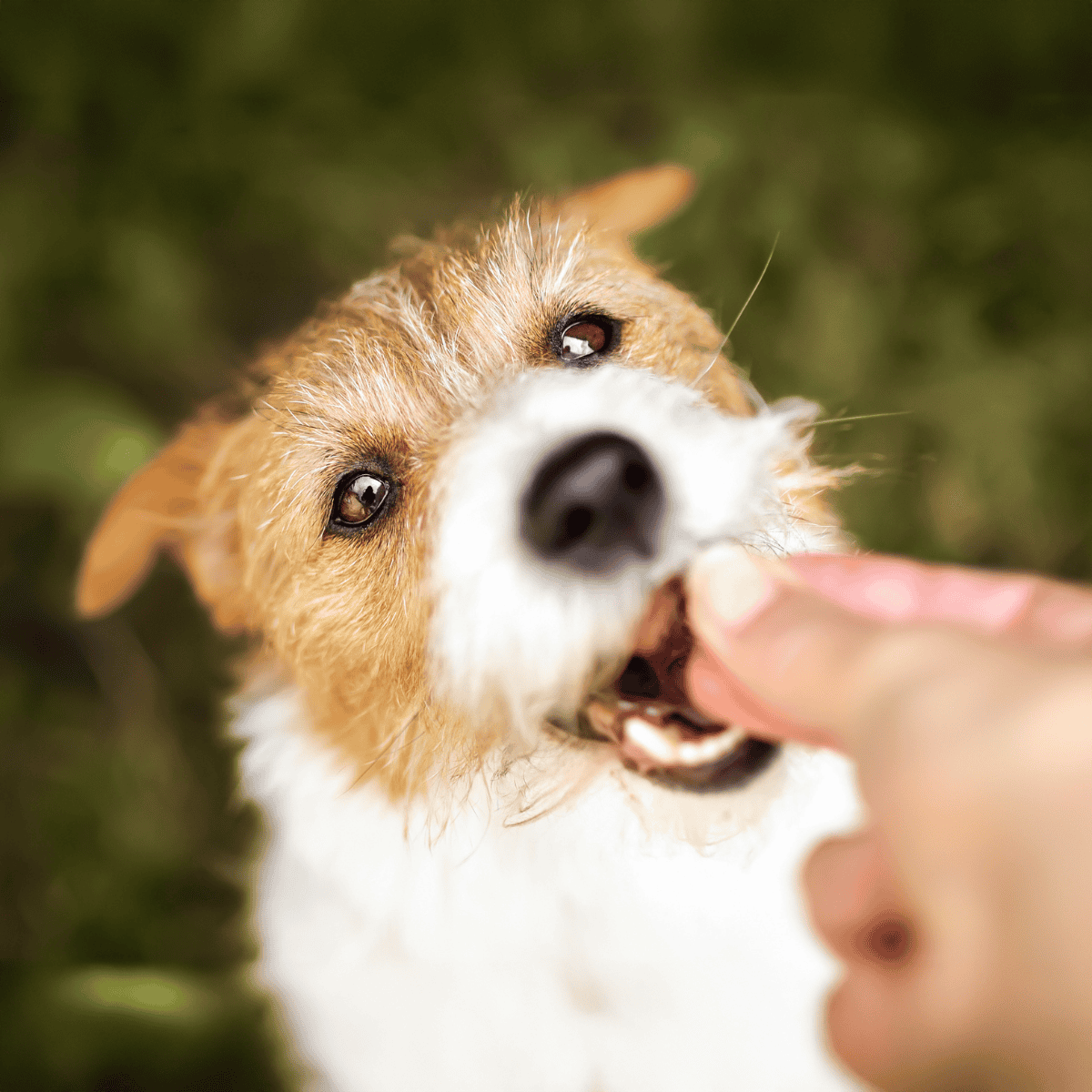
Products like Nutramax® Solliquin® can help them relax. Some supplements also include probiotics, like Purina® Pro Plan® Calming Care, which support both digestion and calmness.
These steps can make your dog more comfortable and help keep stomach sounds in check.
Preventing Future Digestive Upsets
Helping a dog avoid future stomach gurgles involves using probiotics, watching their diet, and seeing the vet regularly. These steps keep their digestion running smoothly.
Diet Management
Managing a dog’s diet is key to reducing digestive upset. Feeding them a balanced and high-quality diet ensures they receive the proper nutrients. Dogs with food sensitivities may need a special diet, so it’s vital to identify any specific dietary needs.
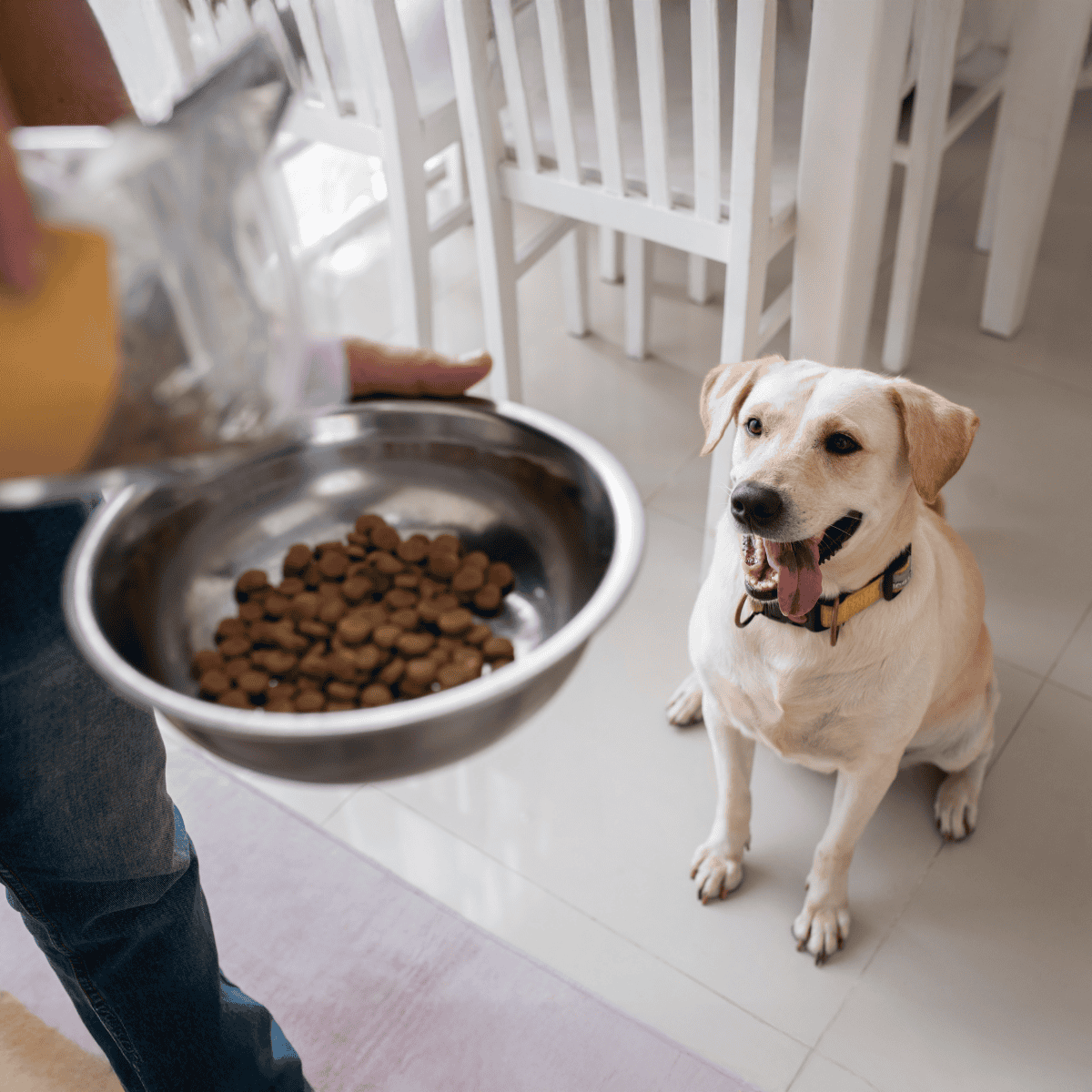
Regular meal times can also promote better digestion. It helps to feed dogs smaller, more frequent meals to avoid overloading their system. Always provide freshwater, as hydration supports digestion. Avoid giving them table scraps or food that might upset their stomach.
Regular Veterinary Check-Ups
Regular visits to the vet play a crucial role in a dog’s digestive health. These check-ups help detect any underlying conditions that might cause stomach issues. A veterinarian can also guide a dog on diet or supplements tailored to its specific health needs.
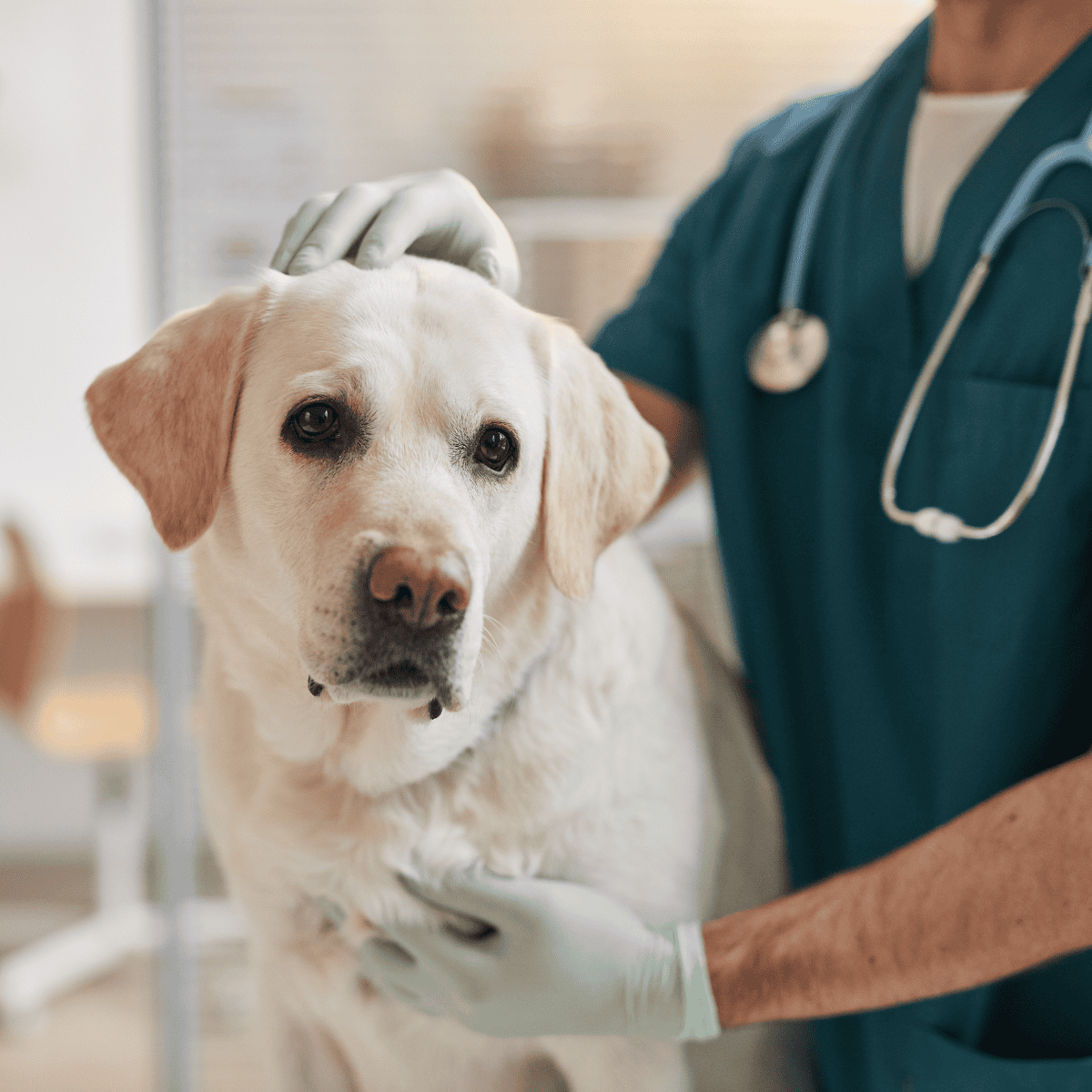
During check-ups, a vet may perform tests to rule out issues such as parasites or infections. These visits also provide a chance to discuss any ongoing digestive concerns with a professional. Keeping an open line of communication with the vet ensures the dog stays healthy and happy.
